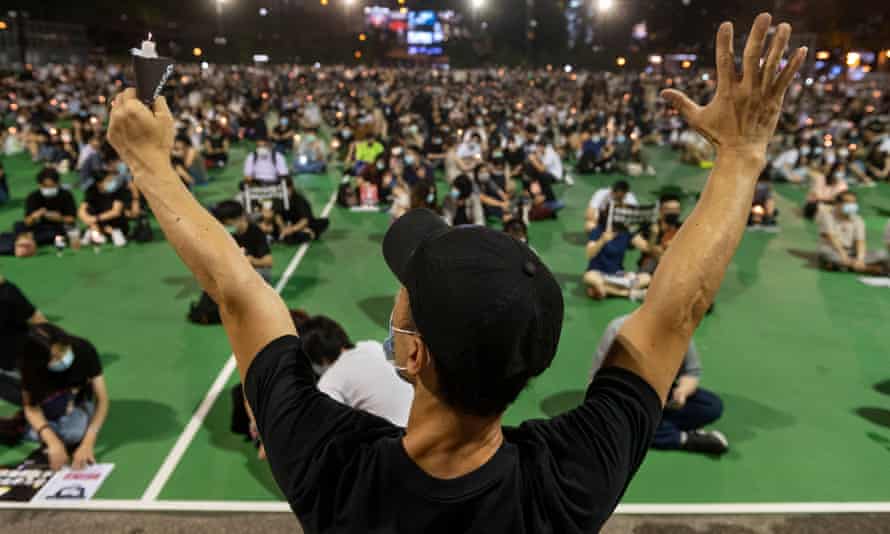This year the Hong Kong vigil has been banned. Anyone gathering at the vigil site in Victoria Park on Friday could face five years in prison. Even publicising the event could lead to one year in jail under Hong Kong’s draconian National Security law, imposed sight unseen at the end of last June following a year of massive pro-democracy demonstrations. Public commemoration has become so risky that one Hong Kong newspaper even suggested writing the digits “64”, to commemorate the date of the protest, on light switches, so that flipping the switch became an act of remembrance. These moves underline the dangerous power of public memory, and how the events of 32 years ago still represent a suppurating sore at the moral heart of China’s Communist party.
This approach seems designed to prevent a rerun of last year, when tens of thousands of Hongkongers defied a Covid-inspired ban to flock to the vigil, where they quietly held candles aloft in socially distanced groups. At least two dozen people, including the newspaper publisher Jimmy Lai and the activist Joshua Wong, have been charged with unauthorised assembly as a result of the gathering, with some sentenced to as much as 10 months in jail. This is just one in a welter of public order offences laid against the territory’s most prominent politicians, lawyers, journalists and unionists, creating a kind of perp walk of conscience through the courtrooms as a generation of activists is criminalised.

